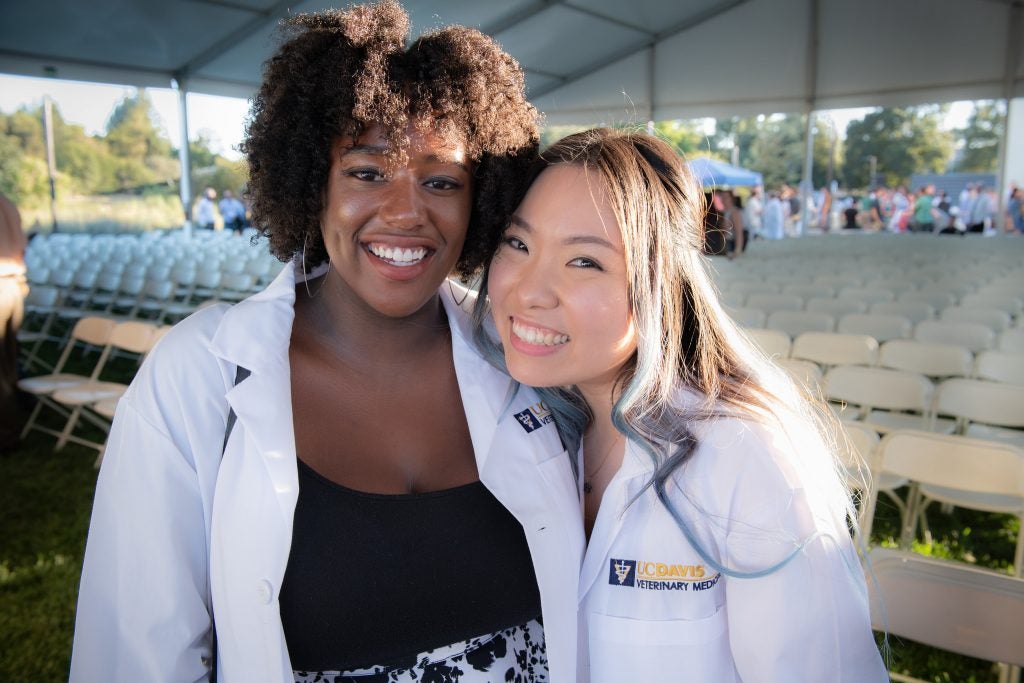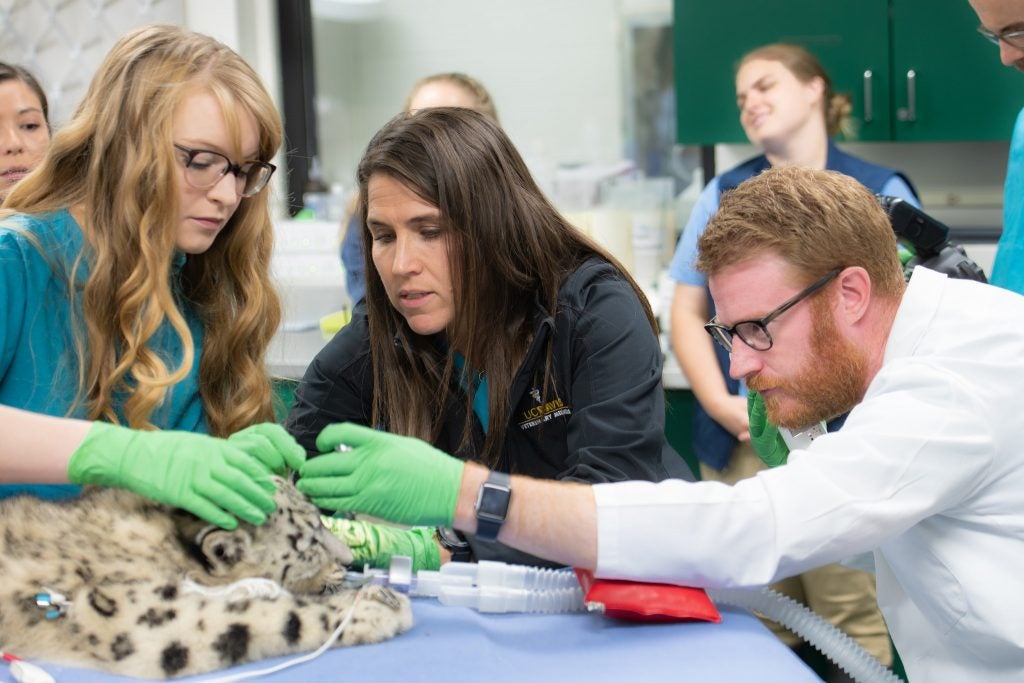“Innovation distinguishes between a leader and a follower.”– Steve Jobs
As the year of 2018 comes to a close, it is a good time to celebrate our accomplishments. For the school, this past year was a time of innovations and discoveries in multiple areas of our mission—from basic science to community building.
We welcomed a diverse incoming class of students who are academically gifted and prepared to serve in our global society. They joined and strengthened a community united by our common sense of purpose to serve society.
Talented teams of researchers, clinicians, students, and staff used novel techniques and approaches. They advanced new treatments and helped answer fundamental questions to explain our world and advance the health of animals, people, and our planet.
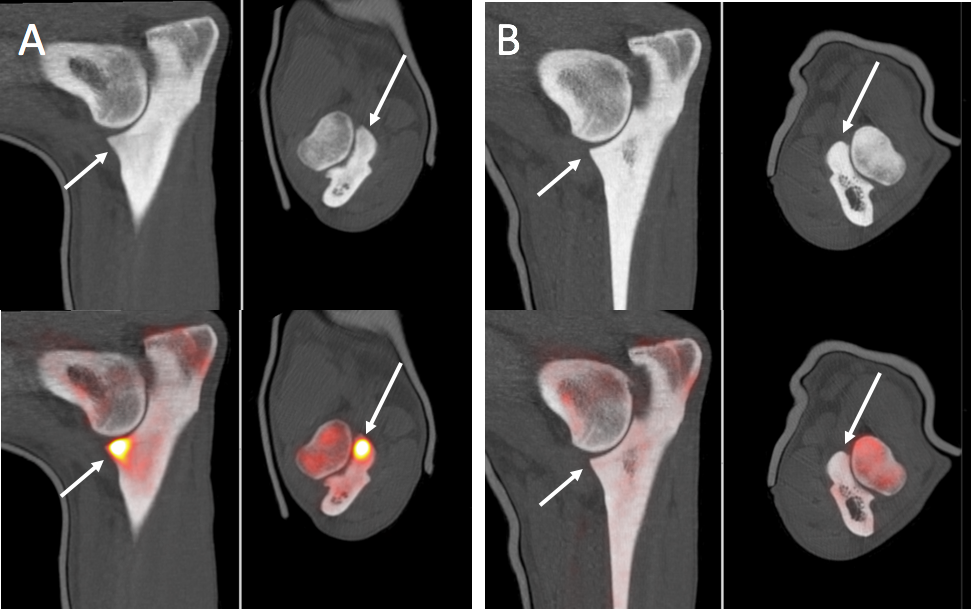
CT/PET fused images (bottom) show much greater detail of lesion location than CT images alone (top).
For example, we were amazed by images from the first-of-its-kind volumetric positron emission tomography (PET) scanner in our hospital. The capacity for whole body PET scanning will open up new avenues for treatments of some of the most vexing problems faced in veterinary and human medicine.
Genetic discoveries and rigorous clinical studies revealed new insights into chronic diseases of dogs, cancer in horses, and blood disorders of cats. Knowing how these disorders begin will provide pathways to discover how we relieve suffering in animals and recognize parallels to diseases in humans.
Our surgeons, working closely with biomedical engineers, used unique approaches to replace bone in animals. They now treat what were once considered hopeless cases of lameness and deformity.
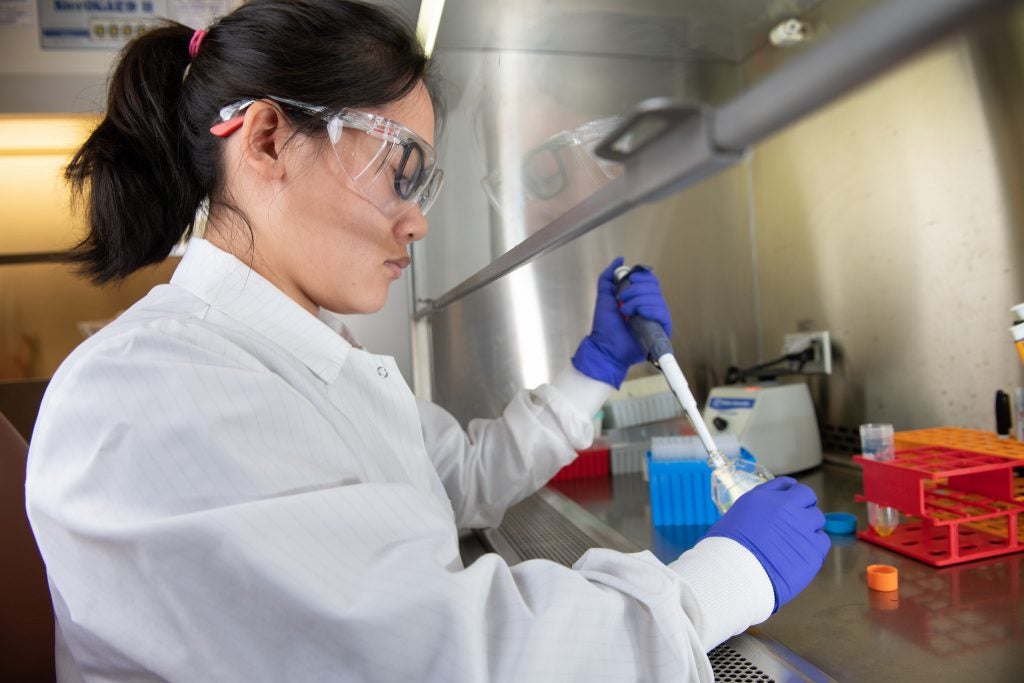
Post Doctorate Oanh Pham works with cell cultures in a fume hood in Dr. Stephen McSorley’s lab at the Center for Comparative Medicine. McSorley and his team are working on a canine cancer antigen to treat dogs with cancer.
Our scientists investigated immune responses to pathogens. We found novel directions for vaccine development and tracked diseases that threaten our food supply. In the process we stopped pathogen spread—helping to save lives and prevent damage to our economy.
Our discoveries were not restricted to campus, as teams of scientists from our school combined efforts to uncover a new species of Ebola virus. This early warning is helping to address a potential new epidemic source, in an area where recent epidemics have devastated populations and raised fears of worldwide pandemics.
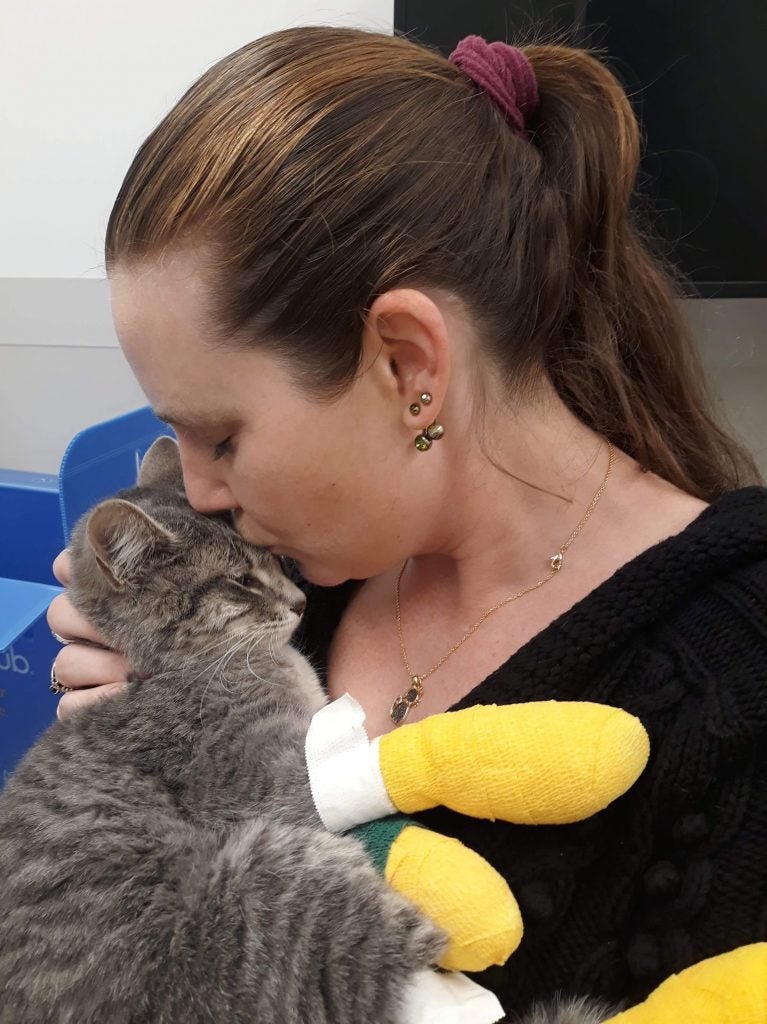
Mayson was one of the first cats from the Camp Fire to be reunited with his owner, Laci, after receiving care at the UC Davis veterinary hospital
The unprecedented heartache we all experienced from the Northern California fires mobilized our entire community, with support and encouragement from people around the world. Together, we saved lives and softened the trauma of families as we reunited them with the animals they love. Our response to the fires has also advanced veterinary medicine, by contributing new methods to heal the wounds of burned animal patients.
Our work to preserve and protect endangered animals spanned from the Sacramento Zoo to the Salish Sea in the Pacific Northwest, to the rain forests of Africa. From across the globe, we brought fresh insights on how to live in harmony with the natural world we all share.
This past year was filled with too many incredible firsts and accomplishments to list in total. I congratulate all of you and commend you for your efforts. As we enter 2019, we must keep our spirit of innovation alive in our daily work; it galvanizes and inspires us to new discoveries and global leadership, which builds a brighter future for all of us.

